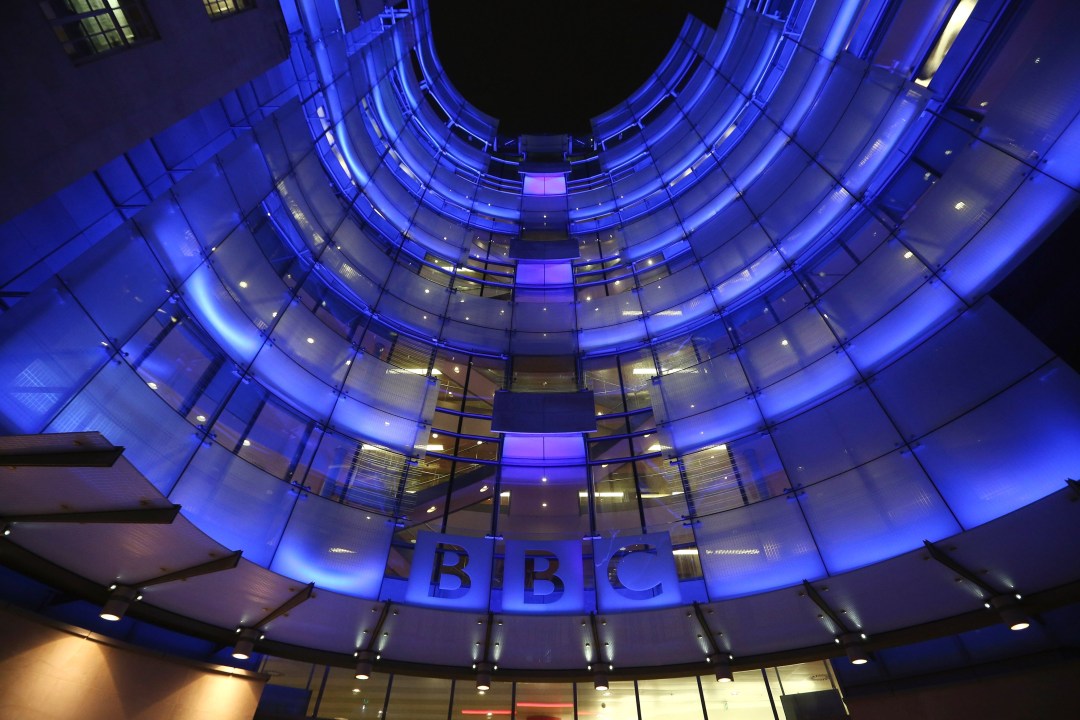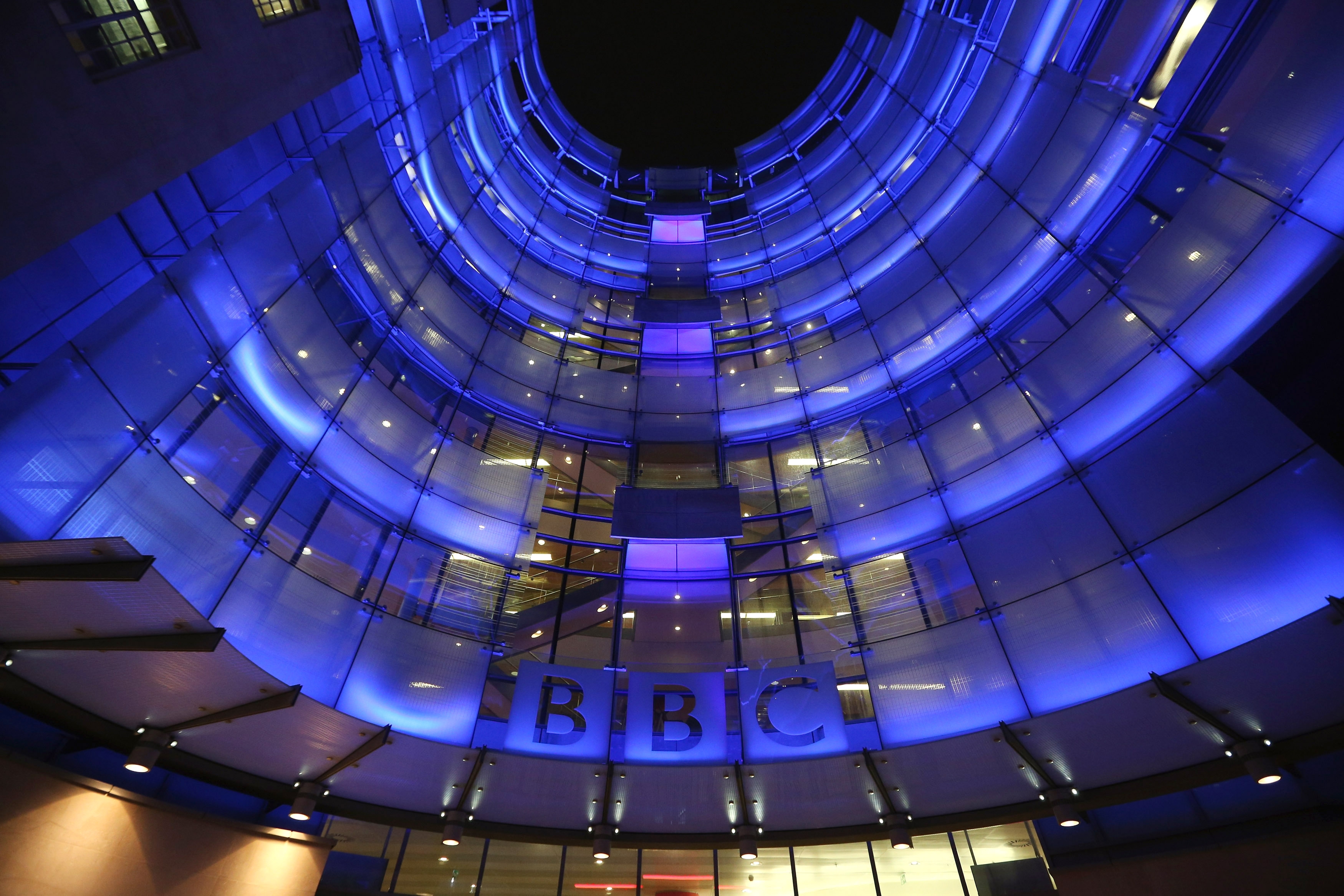Along with holly wreaths, unfeasibly large poultry and popular carols played on an endless loop, there is another ritual at this time of year; the BBC unveils its Christmas schedules — followed immediately by a chorus of sour complaint about the fare on offer. The Corporation published details of its programming at the start of December and, true to form, the
Daily Mail and its readers were far from pleased: ‘Deja View’ ran the headline ‘BBC Christmas schedule in slammed by viewers’. In uncertain times it’s good to see time-hallowed traditions kept alive.
The substance of the Mail’s complaint was that there were too many repeats and game shows — a third of the total by the newspaper’s reckoning — and a cursory examination of what’s on offer bears out the justice of this gripe. The big slots are all taken by programmes that have, sometimes for reasons unfathomable, become massively popular, even coming to define our national culture. For instance Strictly Come Dancing, that bloated behemoth of shrieking celebrity wannabes, gets the late afternoon perch on Christmas Day — that moment when the national digestive system is at its most overburdened and sluggish.
What the Corporation is offering is a melange of the cynical, the tawdry, the titillating and the trashy
I can just about understand the success of Strictly — the tawdry glitter of the set is artfully calculated to appeal to those starved of real glamour and romance; but a Mrs Brown’s Boys Christmas special? I suppose the terminally undiscriminating, like everyone else, must be served by the BBC if they pay their license fee — but its witless vulgarity should make corporate heads hang in shame. Once upon a time the BBC saw as its duty the elevation of popular taste; its promotion of Mrs Brown’s Boys suggests it has abandoned that aspiration in favour of meeting the lowest possible appetite. Elsewhere there is a Have I Got News For You Christmas special, presumably because even at Christmas the Corporation feels duty-bound to serve up a portion of smug establishment satire to maintain its progressive credentials. And isn’t that a weird thing — satire not of the establishment but by the establishment? Ian Hislop and his pals would not dare make a joke that transgressed the woke rules, thus rendering the whole thing about as ‘edgy’ as The Archers.
What else is on offer? The usual re-packaging of murder as entertainment: a new entrant here is The Valhalla Murders with the tantalising difference that — wait for it — it comes from Iceland! How exciting is that? Icelandic noir, who’d have thought it? Let me guess — females murdered, horribly, cruelly, grotesquely, an oddball police team in apparently impossible circumstances, dysfunctional home lives, etc etc. I read somewhere that some academic study estimated that the average human adult spends 6 per cent of the waking day consuming narrative; in an average waking day of say 16 hours that adds up to nearly 1 hour devoted to stories of one sort or another. No wonder the BBC spreads its net ever more widely for narrative novelty; the appetite is enormous though the quality of what’s on offer seems ever to diminish.
Looking through the BBC’s schedules for Christmas does not, in truth, make the heart leap in joyous anticipation. Given people tend to consume more television than usual at Christmas — and more so than ever this year — television is a crucial ingredient of the holiday, and one that tells us much about the national culture. The schedulers at the BBC are clever people, paid good money to anticipate our desires, so we must assume that what’s on offer is the result of canny calculation and not just the first old rubbish that comes to hand. And if this is so the conclusion I draw is a doleful one.
What the Corporation is offering is a melange of the cynical, the tawdry, the titillating and the trashy. In low British culture, as in high, there is almost nothing on offer these days that is calculated to be uplifting; nothing that raises the spirits (unless dead Icelandic girls are your particular thing) or gives rise to a sense of optimism and hope. Is this the BBC’s fault? Not entirely, clearly, because the Corporation is not the sole provider, but as the most important cultural institution in the country nor can the BBC escape a hefty slice of the blame. The days of high-minded Reithian orthodoxy are long gone, and some will say good riddance, but what has replaced it is dispiriting; a culture where drama is nihilistic and pessimistic, where vacuous celebrity worship takes centre stage and where the underlying ‘values’ are shoddy and meretricious. The BBC’s Christmas schedule is the abattoir of the human spirit.







Comments